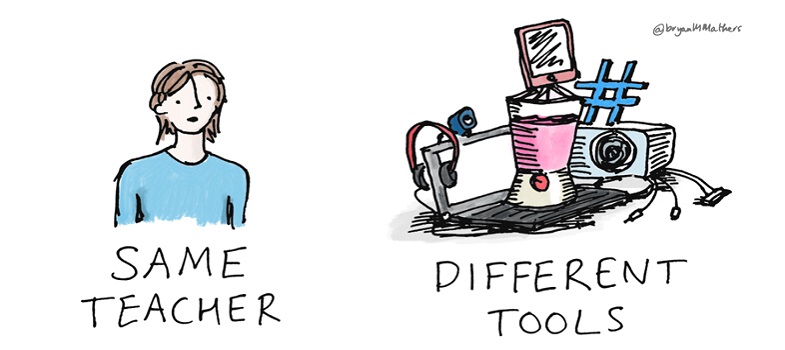3.1 Course management
Online courses, and courses with any online component, are usually delivered using a host platform, commonly referred to as a Learning Management System (LMS) or Virtual Learning Environment (VLE). These systems support teachers in delivering materials to the learner, keep track of registered students, and support other tasks such as assessment and communications. Teachers based in traditional universities, colleges or schools will not normally have much input into the selection process when the institution is investing in one of these products (even ‘free’ LMS systems like Moodle require investment in terms of adapting and running the product). Usually the teacher’s role is to find out what possibilities exist for teaching online using the product, and to use the elements that seem most productive in their individual context. Often a variety of tools can be included, such as blogs and wikis, quizzes and automated assessment processes, spaces for synchronous and asynchronous learning activities, and repositories for learning objects. You will learn more about the ways in which LMS tools can be used in teaching next week.
3 Digital technologies for online teaching
